Proteins are essential for life, they are needed for pretty much all our bodily functions. They help form hair, skin, nails, muscles, hormones and so much more. They are one of the three macronutrients (with carbohydrates and fats being the other two) and are needed in relatively high quantities by the body. Protein plays a vital role in cellular growth as well as development, repair, immunity and cell signalling. With an explosion of protein powders and supplements to the market it’s a great time (and often a confusing one) to think about whether firstly we may need a protein supplement, what the best sources of protein are and whether we should be worrying about a protein deficiency.
So, how much protein do you need?
The body actually needs more protein as you get older. As we age we become less efficient at handling and responding to protein so need more of it to function optimally compared to when we are younger. It might not surprise you to find out that this increases further if you are a woman post menopause. The protein requirements officially change when we are over 65 however menopause has such a large hormone shift in a short period (resulting in body changes such as reduced muscle mass and increased body fat) that it might be wise to start upping your protein intake earlier than 65 as a woman. In addition combining that increase with a well-structured strength training plan can offset those menopause changes.
The decline in muscle mass as we get older is exacerbated in women due to the drop in oestrogen levels (find out more about this in my previous blog). Getting enough protein can help offset this muscle mass decline and is crucial for women. Adequate protein intake in midlife and beyond is hugely impactful in maintaining healthy physical functioning and an active lifestyle. Studies have shown that those consuming the greatest amount of protein showed a 30% reduction in the risk of losing physical function. Whilst this doesn’t mean that you need to consume the absolute maximum amount of protein it does suggest that there is an association between higher protein intake and maintaining physical function as we age, especially as women.
The general protein recommendation for adults is to have 0.8 grams of protein per kg of bodyweight with more active women (especially those lifting weights) having 1-1.2 g per kg bodyweight which is 65-78 g of protein for a 65kg woman. It has also been suggested that an additional 0.4 g per kg bodyweight in snacks throughout the day (an additional 26g of protein) for women in midlife and beyond is optimal.
So, to get all this protein in throughout the day it’s wise to take a look at some of the foods richest in protein. Typically animal-based protein sources are more readily utilised by the body than plant-based protein sources, but that does not mean we should ignore plant sources.
Healthy animal sources of protein include:
- Eggs (a large egg has approximately 6 g protein)
- Chicken
- Turkey
- Salmon
- Milk
Plant based sources include:
- Quinoa
- Soy
- Tofu
- Lentils
- Tempeh
Nuts are also a good source of protein but do also contain a high amount of fat alongside other important nutrients which make them a great snack or topping rather than a main protein source.
Protein powders shouldn’t be overlooked – when mixed with high quality milk such as dairy or soya these can help women boost their protein intake, especially if struggling to get enough in via the diet as appetite can be a limiting factor here! Be sure to have a look and see how much protein per “scoop” on the power you choose so you can keep track. Also these can be very high in sugar so it's wise to do some research!
So a typical day’s protein intake could look like this:
- Breakfast – eggs and toast with avocado, maybe some feta. Greek yoghurt is also great!
- Snack – either a high quality protein shake or houmous with veggies
- Lunch – chicken salad (quinoa is a great source to add)
- Snack – live natural yoghurt with fresh fruit and sprinkle of nuts
- Dinner – Salmon fillet stir fry
My top tip is that I try to ensure I have protein at the centre of every meal which also keeps me fuller for longer.
It’s important to remember that upping your protein intake won’t make you bulk up, it will help your body to function optimally as you get older, to build lean muscle to keep you physically active and live a longer healthier life.
What’s your favourite protein based meal or snack?
Caroline x







